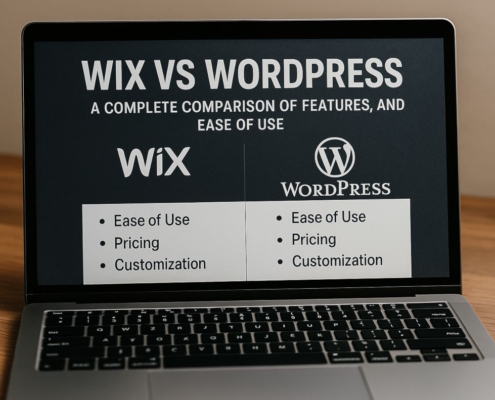What does estate planning mean?
The purpose of estate planning is to lay out a strategy for the distribution of one’s assets at death. It also specifies who should manage your affairs in the case that you become disabled or otherwise unable to do so. It’s a complex procedure, and you might feel overwhelmed by it. Despite the widespread belief that estate planning is solely concerned with financial matters, there are really many other aspects to consider.
No one can deny that dealing with estate planning is an arduous task, but we must all eventually face it. To make it easier to understand, we have divided the process into smaller parts.
Simply said, estate planning is the act of laying out your wishes for the distribution of your assets after your death or in the event that you become disabled and unable to do so yourself. While estate planning has been around for a while, its popularity is on the rise. The most popular definition is the process of establishing arrangements for the administration and transfer of your assets after your passing, using a trust, will, insurance policies and/or other devices.
While there are many moving parts to an estate plan, the first step is to take stock of all of your assets. Any and all assets you possess are collectively known as your estate. This includes:
- Cars
- Cash
- Jewelry
- Clothes
- Investments
- Houses
- Retirement accounts
- Savings
- Land
You can start making preparations once you have a good grasp of the components that make up your estate.
An Introduction to Estate Planning
There are numerous reasons why estate planning is crucial. The most significant advantage is that you can avoid leaving your loved ones in the dark about the distribution of your estate by being as proactive as possible about planning for your future while you are mentally and physically able to do so. If you put in the time and effort now, tomorrow will turn out just the way you imagined it.
You can rest assured that your desires will be clearly and precisely laid out in the most tax-efficient way possible in a well-prepared estate plan, eliminating any room for confusion or miscommunication.
Standard forms used for estate planning
Your estate plan will consist of multiple documents. Together, they convey your last wishes in a strong and meaningful way, and each one is important in its own right.
1. Guardianship
Specify your wishes regarding the distribution of your estate and the persons you want to be named as guardians for your minor children or other dependents in the event that you become disabled and cannot care for them yourself. Your will is the best place to lay out your guardianship instructions.
2. Will
A formal document outlining the final disposition of one’s assets and property.
3. Trust
One party (the Settlor, sometimes called the Trustor or Grantor) formally authorizes another party (the Trustee) to hold assets and property for the benefit of a third party (the Beneficiary) in a legally binding fiduciary agreement.
4. Power of Attorney for Financial Matters
A power of attorney designates another person as the custodian of your money and property.
5. Durable Power of Attorney (POA)
An alternative form of a financial power of attorney, which grants another person the authority to manage your non-medical and non-health-related affairs on your behalf. A power of attorney (POA) is considered “durable” if it continues to be valid even after your incapacity ends.
6. Advance Healthcare Directive (AHCD)
This document is also known as a medical power of attorney or a living will. If you want your medical decisions to be carried out in the event that you become incapacitated and unable to do so, an Advance Healthcare Directive can tell you exactly what to do.
Although “AHCD,” “Medical Power of Attorney,” and “Living Will” sound similar, there are actually legal differences between the three.
You can lay out your wishes for your healthcare, especially regarding end-of-life choices like life support, in a living will.
If you ever find yourself unable to make decisions about your healthcare, a Medical Power of Attorney can help you name someone to do it on your behalf.
You can express your wishes and appoint a substitute decision-maker with an AHCD, which combines a living will with a medical power of attorney.
7. HIPAA Authorization
You grant permission for a third party to access your medical records or information.
8. Taxes and your estate
You take taxes into consideration when you plan your estate. Your last wish should be to leave your loved ones as much as possible. One effective strategy to achieve your goal is to take action to minimize assets lost to taxes. You can use your estate plan to your advantage in a number of ways, one of which is to transfer assets free of taxes and stay out of probate. Make sure you’re familiar with the many forms of taxes.
If your estate is worth more than a certain amount, you may be subject to an estate tax. The full value of the estate is not subject to taxation; only the portion that surpasses the maximum is.
Whoever receives money or property from a deceased person is subject to an inheritance tax.
Any gift over a particular threshold is subject to a gift tax. The onus for paying any applicable taxes is on the donor, not the recipient.
Who should have an estate plan?
Everyone, to put it simply. It’s easy to tell ourselves that an estate plan is unnecessary. However, if more of us were to put some thought into our futures, we’d all be better off. A valid estate plan is necessary regardless of your age, wealth, or the amount of money in your bank account. You should give some thought to making a plan once you reach the age of 18.
Your estate plan ensures that your wishes will be known by all parties involved, regardless of the amount of assets you may have. Examples of this include health directives and long-term healthcare wishes. If you ever become incapacitated and unable to communicate your wishes, your estate plan will act as a voice for you, allowing your loved ones to avoid difficult decisions and uncertainty about your wishes.
It used to cost thousands of dollars to properly prepare the documents that go into an estate plan. Luckily, you now have choices. It is possible to get an affordable, legally binding, effective, and valid estate plan that will make your wishes known in the event that it is ever necessary. An estate plan is still a good idea even if you don’t have a lot of money or property.
The 12-Step Process for Developing an Estate Plan
Although there are many moving parts in an estate plan, we have attempted to simplify the process for you by outlining each one.
- Get your assets together. Write down every single item you possess, from vehicles to rare collectibles.
- Keep your loved ones safe. Evaluate your life insurance policy to make sure it covers enough to let your loved ones continue living comfortably after you pass away.
- Choose the strategy that works best for you. Determine your specific needs in terms of an estate plan.
- Pick a guardian for your kids, pets, or yourself. You should select a guardian if you have minor children, pets, or are caring for a loved one who is unable to care for themselves. Additionally, you have the option to designate an individual to act as your agent in making decisions regarding your health care and/or finances in the event that you are unable to do so yourself.
- Find out what instructions are required and set them up. You should incorporate the following directives into your estate plan:
Durable Power of Attorney
Advance healthcare directive
While durable power of attorney (POA) documents are more standard, limited power of attorney (LPOA) documents do have their place.
- Identify your beneficiaries. There will be beneficiaries listed on some accounts and documents. Plans for retirement and life insurance are two examples. However, if you wish to leave certain assets to a particular individual, you should make a note of them in your will or trust. You should designate contingent beneficiaries if the opportunity arises. Keep in mind that naming beneficiaries won’t take effect until after you die. If you become mentally or physically disabled and can’t make decisions, you need to have planned for more than just naming beneficiaries.
- Find someone you can trust. Find out what options you have for making an estate plan. Meeting with an attorney in person is one option, but you also have the option of working with another service provider. While you do have options, keep in mind that some will undoubtedly cost you more than others.
- Make a strategy. Follow the instructions to the letter if you’re making your estate plan online; otherwise, you may miss important details.
- Notarize and sign your estate plan. Make sure you research the minimum number of witnesses that your state needs.
- Let your executor know. It is wise to inform the individual you designated as your executor of your plans.
- Protect the papers related to your estate plan. Leave your estate plan in a visible and secure location so that your loved ones can locate it with ease. It is wise to invest in a fireproof safe.
- Revise as necessary as time goes on. Although there is no set rule for how often you should revise your estate plan, it is wise to do so whenever significant life events occur, such as the arrival of a new child, the passing of a loved one who was integral to your plan, a marriage, a divorce, etc. If you’ve been living a relatively event-free life as of late, it might be a good idea to revisit and revise your plan every three to five years.
Avoiding common errors in estate planning
Be careful as you craft your estate plan. Delays, inaccurate information, or other misunderstandings could emerge from the numerous mistakes. Here are a few examples of typical blunders people make:
- Having no formal strategy
- Leaving a strategy unchanged over time (during significant life events)
- Having no plan in place for when they are unable to care for themselves (due to illness, injury, or age)
- Problems with asset ownership (the ease of passing assets on)
- Excluding donations to charity
- Refusing to name a guardian for a minor or someone else in need of their care
- Neglecting to consider the impact of taxes
- Lack of asset liquidity
- Leaving a large portion of their estate to future generations by avoiding certain bequests (tax benefits)
- Including their child’s name on property deeds (which could have significant tax consequences)
The Difference Between a Will and an Estate Plan
A will isn’t enough, despite popular belief. You really need additional legal protections. Of course, a will is a great way to get things started off on the right foot. However, a will is only one component of an estate plan. To make sure your loved ones are well-protected after your death, it’s important to include all the necessary paperwork, designations, and appointments to make things easier for them.
Why is it important to have an estate plan?
Estate planning, or determining who will get one’s assets after one’s death, doesn’t seem to get nearly as much attention as other life decisions, such as booking a vacation, picking out a new car, or even choosing a restaurant. Estate planning isn’t exactly a fun thing to think about, but it’s necessary if you want to control who gets your hard-earned possessions after you die.
Anyone can benefit from an estate plan. No matter how modest your assets may be—a nice home, a sizable IRA, or priceless artwork—the lack of a strategy for how to divide up your possessions after your death could have a devastating effect on your loved ones.
Still not sure that you need an estate plan? To save your loved ones from terrible hardship, think about these four arguments in favor of having one.
- Protecting beneficiaries through an estate plan
The days of thinking that only the very wealthy needed estate planning have passed. In the event that the breadwinner (or breadwinners) of a middle-class family should pass away, the family will still need a plan. Even if you don’t have a fortune to start with, you can still build assets to leave to your loved ones by investing wisely in the stock market or real estate.
You lose all control over the disposition of your property upon your death, regardless of how little—even a second home—if you do not name a beneficiary.
Why? Because leaving your summer home or investment portfolio to a specific person or people is the most important part of estate planning. The courts will typically decide who gets your assets if you don’t have an estate plan in place. This can be an ugly, time-consuming, and expensive process. The court has no way of knowing which of the siblings is at fault or who should not have unrestricted access to funds. Also, the courts will not necessarily decide that the survivor spouse gets everything.
- Safeguarding minors through an estate plan
No one ever plans to die young, but parents of young children must be ready for the unthinkable. Here is where a well-thought-out will becomes relevant in an estate plan.
In the unfortunate event that both parents pass away before their children reach the age of 18, it is important to establish guardianship to guarantee that your children are cared for according to your wishes. If you do not designate these people in your will, the courts will have to figure out who will take care of your kids.
- The beneficiaries of an estate plan avoid heavy taxes
Making an estate plan is all about keeping your family safe, which includes keeping them safe from the Internal Revenue Service (IRS). One of the most important aspects of estate planning is minimizing the tax liability of beneficiaries.
It is possible for couples to minimize or eliminate federal and state estate taxes as well as state inheritance taxes with minimal estate planning. Additionally, there are strategies to reduce the potential income tax obligations of beneficiaries. Uncle Sam could end up with a hefty sum from your estate if you don’t have a strategy.
- Resolving family conflicts with an estate plan
Everyone has heard the scary stories. The death of a wealthy family member sparks a civil war within the extended family. For example, one sibling may believe they are more deserving than the others, or one sibling may insist on handling the family finances despite their history of financial mismanagement. When family members argue over little matters, it can quickly escalate into a full-blown legal battle.
An estate plan is important for many reasons, one of which is to prevent arguments from breaking out. By doing so, you can direct the distribution of your assets and funds in the event of your incapacity to do so or your death, putting an end to potential family disputes and accomplishing your financial goals.
If you need to make special arrangements for a child who is sick or for someone who would be better off without a lump sum, you can use this tool to do that. It can also help you prioritize your children’s needs, so you can give more to the one who took care of you in your later years and less to the one whose siblings you supported financially while paying for their college education.
One of the most important things to consider is whether or not to divide your estate equally. Without a doubt, an estate plan is absolutely necessary if you have had multiple spouses or if your children come from different families.
In Conclusion
An estate plan is necessary to ensure the safety of your loved ones and your possessions in the event that you are unable to do so yourself. Your heirs might be subject to heavy tax bills and the courts could decide who gets to raise your kids if you don’t have a will.































